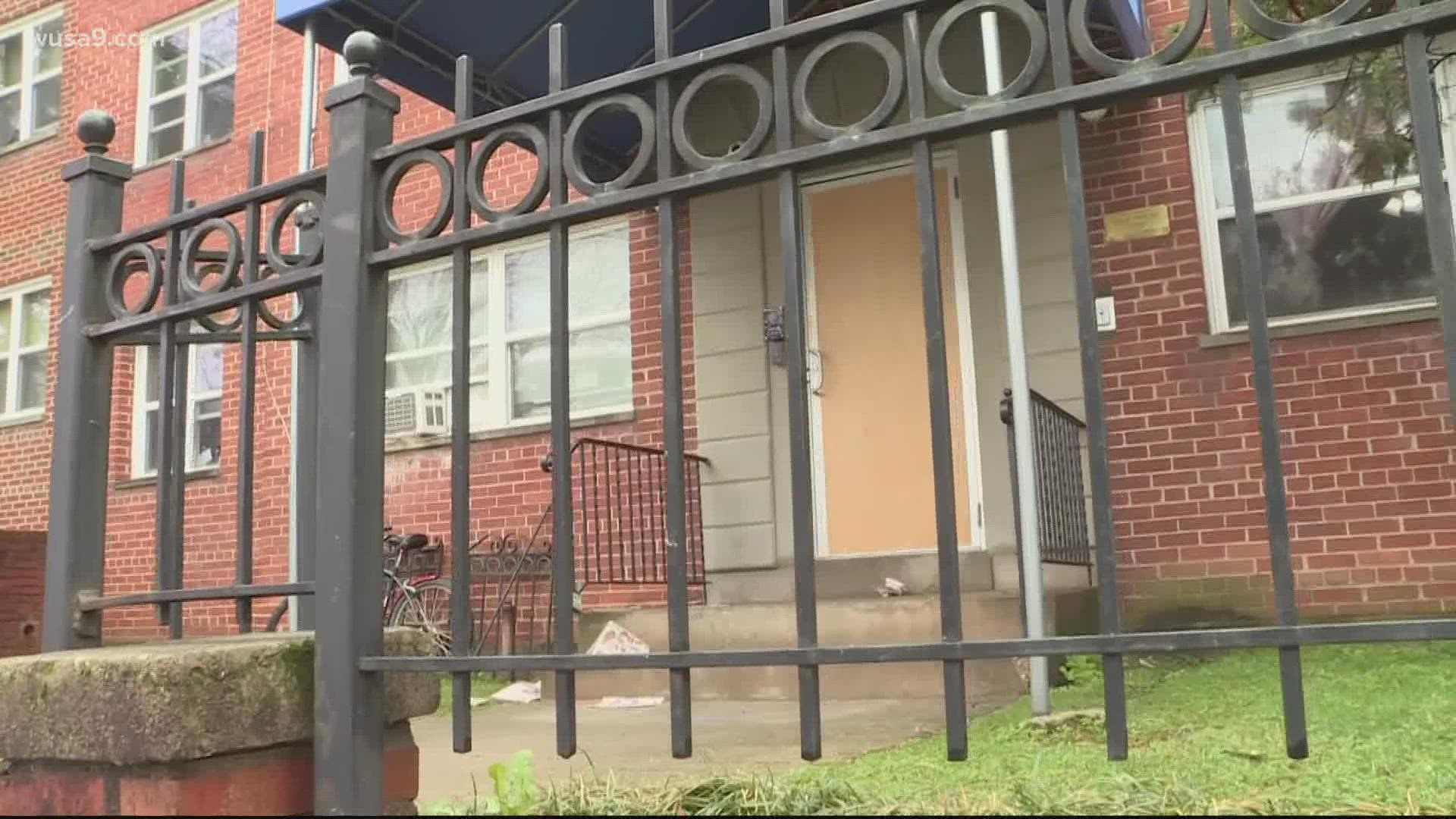WASHINGTON — Even though many COVID-19 restrictions are lifting around the area, lots of people are still struggling to pay the bills due to the pandemic. Now, there’s a plan that could bring long-term relief for renters in the District.
The D.C. Council just voted to ban evictions if tenants owe less than $600. So, WUSA9 wanted to know what other protections are in place for renters in D.C., Maryland and Virginia?
Let’s Verify.
Question:
Can tenants be evicted for back rent in DC, Maryland and Virginia?
Sources:
- DC Council
- The Maryland Judiciary
- Virginia Department of Housing and Community Development
- Mel Zahnd, Senior staff attorney in the Housing Law Unit at Legal Aid DC
Answer:
In a unanimous vote Tuesday, the D.C. Council passed the Eviction Record Sealing Authority and Fairness in Renting Amendment Act. The bill still needs Mayor Muriel Bowser's signature before becoming law. If signed the measure would:
- Ban evictions when a tenant owes less than $600
- Seal court records after 30 days if the landlord fails to evict
- Seal court records after 3 years if eviction is successful
- Require landlords to notify tenants, in their native language, 30 days in advance.
“This legislation puts protections in place so that landlords can't rely on inaccurate or stale information,” explained Attorney Mel Zahnd with Legal Aid D.C. “Even a record of an eviction case - whether or not it ultimately ends in an eviction - can have long term effects for tenants, it can make it very hard for those tenants to find housing in the future.”
Attorney Zahnd said lawmakers used a 2020 study from Georgetown University, McCourt School of Public Policy and the Meyer Foundation.
The study found:
- 60% of evictions occur East of the River
- 25 out of every 100 households in Ward 8 are impacted
- 3 out of every 100 households in Ward 2
- In 2018 the same 20 landlords were behind half of all D.C. evictions
According to the study’s authors, “most tenants owe modest amounts at the time of their evictions. The average tenant owes just over $1,200, 12% owe $600 or less.”
So, what about our neighbors in Maryland and Virginia?
According to the Virginia DHCD, the General Assembly just extended protections for tenants until June 30, 2022. Instead of evicting for back rent, landlords must notify tenants within 2 weeks of the Rental Relief Program or apply themselves.
A spokesperson with VDHCD sent WUSA9 the following facts:
Current state law requires landlords and tenants to cooperate with each other in matters regarding nonpayment of rent and applying for rental assistance based on income eligibility and availability of rental assistance funds.
The notices from landlords for unpaid rent must give tenants 14 days to pay before a landlord can take any action to evict the tenant. This requirement expires July 1, 2022. This will revert to 5 days to pay before a landlord can take action.
The notice for unpaid rent must also include information on the Virginia Rent Relief Program (RRP), including how to apply. This requirement expires June 30, 2022.
If the landlord owns 5 or more rental units, they must offer a tenant a payment plan to catch up on unpaid rent. This requirement expires July 1, 2022.
There is currently over $200 million in Emergency Rental Assistance available through RRP
- The Virginia Eviction Reduction Pilot 2022 program currently includes seven grantees and is currently underway.
- Eligible activities of the pilot include but are not limited to financial assistance, case management, landlord outreach, legal services and court navigation services. Funds are allocated to organizations across the commonwealth to implement the pilot and carry out the necessary activities to prevent evictions in their community.
- The purpose of this pilot program is to create a local/regional coordinated systems approach to effectively prevent evictions. When evictions cannot be prevented, the system must also include how to divert evictions once the household has received an unlawful detainer. The system's approach will include creating a collective impact model where organizations that serve as a safety-net within the community collaborate to ensure households have early access to resources to stabilize their housing situations.
In Maryland, Governor Larry Hogan’s eviction moratorium expired on Aug. 15, 2021. According to the Maryland Courts website, tenants can no longer use the order “as a defense to a Failure to Pay Rent case.”
However, tenants can still apply for emergency rental assistance.

